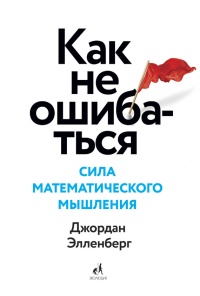Книга Не бери в голову. 100 фактов о том, как подсознание влияет на наши решения - Крис Пэйли
Читать книгу Не бери в голову. 100 фактов о том, как подсознание влияет на наши решения - Крис Пэйли полностью.
Шрифт:
-
+
Интервал:
-
+
Закладка:
Сделать
Перейти на страницу:
Перейти на страницу:
Книги схожие с книгой «Не бери в голову. 100 фактов о том, как подсознание влияет на наши решения - Крис Пэйли» от автора - Крис Пэйли:
Комментарии и отзывы (0) к книге "Не бери в голову. 100 фактов о том, как подсознание влияет на наши решения - Крис Пэйли"








